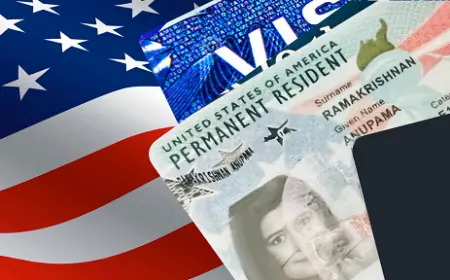Currency Exchange in Europe: A Complete Guide for Travelers
This guide explores the essentials of exchanging currency across European countries, giving you clear insights into the best practices, challenges, and options available.

Introduction
Traveling to Europe is an exciting experience. From historic landmarks to modern cities, the continent offers endless opportunities for exploration. However, one essential factor that every traveler must plan carefully is currency exchange in Europe. Handling money the right way ensures convenience, safety, and savings during your journey. This guide explores the essentials of exchanging currency across European countries, giving you clear insights into the best practices, challenges, and options available.
Understanding the Euro
The Role of the Euro
The euro is the official currency used in most European Union countries. Currently, it is one of the strongest and most widely traded currencies in the world. For travelers, this simplifies financial management across multiple countries. Instead of exchanging different currencies in each nation, you can use euros across popular destinations like France, Germany, Italy, and Spain.
Exceptions to the Euro
Not all European countries use the euro. Nations like Switzerland, Norway, Denmark, and the United Kingdom maintain their own national currencies. This makes currency exchange in Europe slightly more complex, especially for travelers visiting multiple regions in one trip. Understanding where the euro is accepted and where it is not can save time and reduce confusion.
Currency Exchange in Europe: Where to Begin
Airports and Train Stations
The first point of contact for many travelers is the airport. Currency exchange counters are usually available in terminals and major train stations. While convenient, these places often charge higher fees and offer less favorable rates. Using them for small amounts can be practical, but it is not ideal for exchanging larger sums.
Banks and Local Branches
Banks across Europe provide reliable currency exchange services. Their rates are generally better than kiosks at tourist hubs. In addition, banks offer a sense of security when dealing with money. Travelers who prefer safe transactions often choose banks for currency exchange in Europe, though banking hours may be limited compared to 24/7 airport counters.
Exchange Offices in Cities
Independent exchange offices can be found in popular tourist districts. These businesses usually display their rates on large boards, making it easy to compare. Some offer competitive deals, while others may charge hidden commissions. Travelers must remain cautious and always double-check the terms before making a transaction.
Digital Alternatives for Currency Exchange
Credit and Debit Cards
Modern travelers rely heavily on cards. Credit and debit cards provide direct access to local currency, either through payments or ATM withdrawals. However, foreign transaction fees may apply. Checking with your bank about international charges before the trip ensures that you can use your cards freely without unexpected costs.
Travel Money Apps
Mobile applications now allow users to hold multiple currencies digitally. These apps are revolutionizing currency exchange in Europe by offering real-time rates and low conversion fees. With features like digital wallets, prepaid cards, and instant transfers, apps create a hassle-free alternative to traditional methods.
ATMs Across Europe
ATMs are widely available in cities, towns, and even smaller villages. They dispense local currency directly, often at competitive exchange rates. However, travelers should avoid using independent ATMs in tourist areas, as these sometimes include high service charges.
Tips for Managing Currency Exchange in Europe
Plan Before Traveling
Researching exchange rates before the journey is always beneficial. Having a clear idea about the current rates prevents you from overpaying at high-cost counters. Preparing in advance also reduces the stress of finding the right exchange service upon arrival.
Carry a Mix of Options
It is wise to carry a combination of cash, cards, and digital wallets. While cash is still essential for small shops, cafes, and rural areas, cards and apps are more convenient in cities. Balancing these options makes currency exchange in Europe smoother and more reliable.
Avoid Tourist Traps
Exchange offices located near iconic landmarks often charge higher fees. By walking a few streets away from crowded attractions, you may find significantly better deals. Staying aware of common tourist traps helps you get the best value for your money.
Currency Exchange and Safety
Handling Cash Securely
Carrying large sums of money in public can attract attention. It is better to withdraw smaller amounts as needed and keep them in secure wallets or money belts. Many European cities are safe, but petty theft in crowded areas is still common.
Using Trusted Providers
Always rely on trusted providers for currency exchange in Europe. Whether you are at a bank, an official counter, or a well-known digital service, ensure that the provider is licensed and reputable. Unofficial dealers may offer tempting rates, but they come with high risks.
Seasonal Considerations
Peak Tourist Seasons
During peak travel months, demand for euros and other currencies increases. This sometimes leads to slightly less favorable exchange rates. Booking currency in advance or using digital tools can help avoid seasonal fluctuations.
Off-Season Travel
Traveling during quieter months not only reduces expenses in accommodation and flights but may also make currency exchange in Europe easier. With less crowding at exchange counters and ATMs, transactions become faster and more efficient.
The Future of Currency Exchange
Rise of Digital Payments
Europe is moving towards a cashless society. Contactless payments, QR codes, and digital wallets are widely accepted in most urban centers. This trend reduces the need for frequent cash exchange, allowing travelers to enjoy seamless transactions.
Cryptocurrency and Innovation
In some regions, businesses are beginning to accept cryptocurrencies like Bitcoin. While still limited, this shows the potential transformation of currency exchange in Europe in the coming years. Digital innovation continues to reshape how people handle money abroad.
Conclusion
Managing money is one of the most crucial aspects of international travel. Understanding currency exchange in Europe allows travelers to save money, avoid stress, and enjoy their journey to the fullest. From using euros across multiple countries to managing local currencies in non-euro nations, preparation is key. Whether you rely on banks, digital tools, or a combination of options, making informed choices ensures a smooth financial experience.
By planning ahead, avoiding unnecessary fees, and staying aware of safe practices, travelers can focus less on currency worries and more on the unforgettable experiences that Europe has to offer.
What's Your Reaction?
 Like
0
Like
0
 Dislike
0
Dislike
0
 Love
0
Love
0
 Funny
0
Funny
0
 Angry
0
Angry
0
 Sad
0
Sad
0
 Wow
0
Wow
0


























































